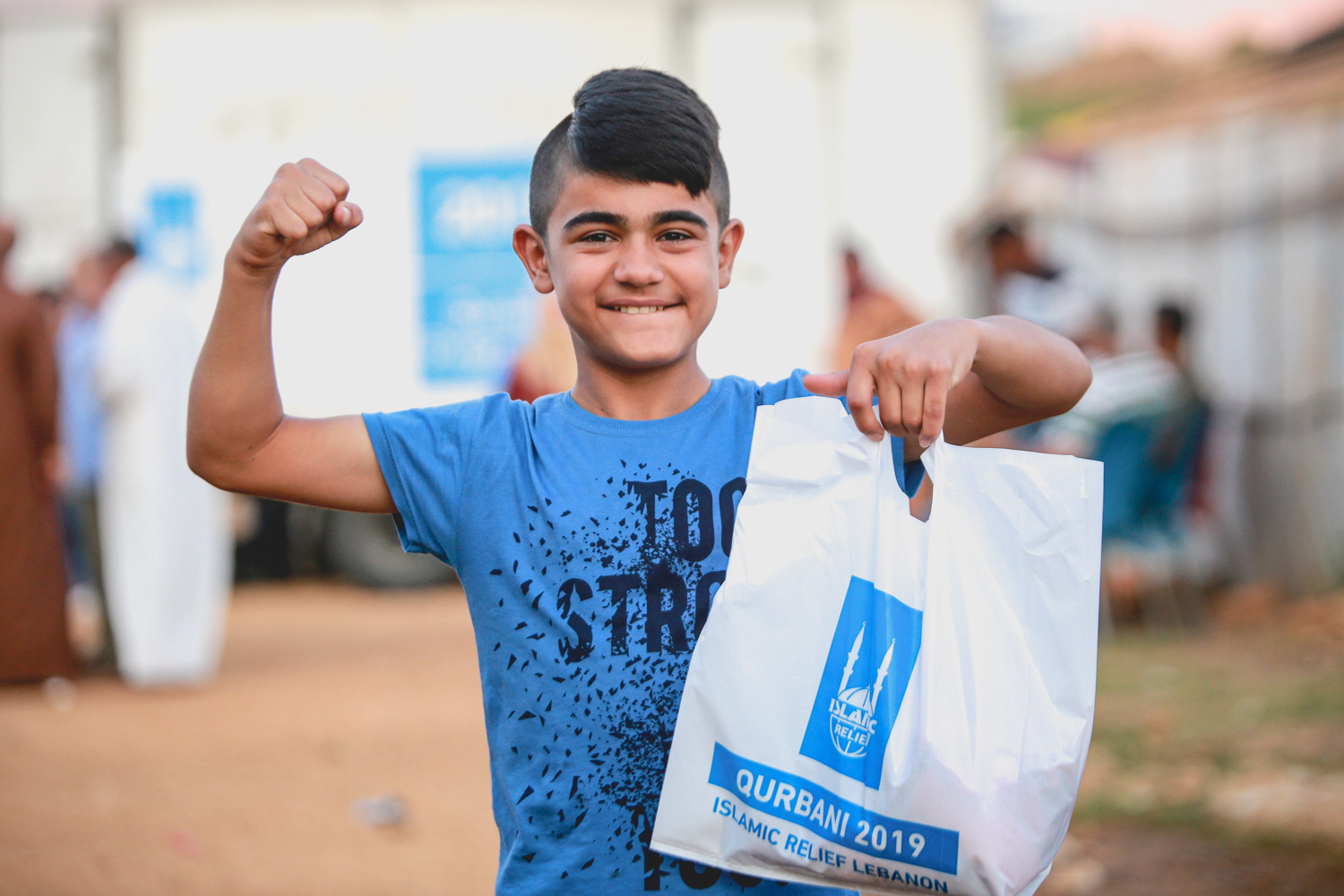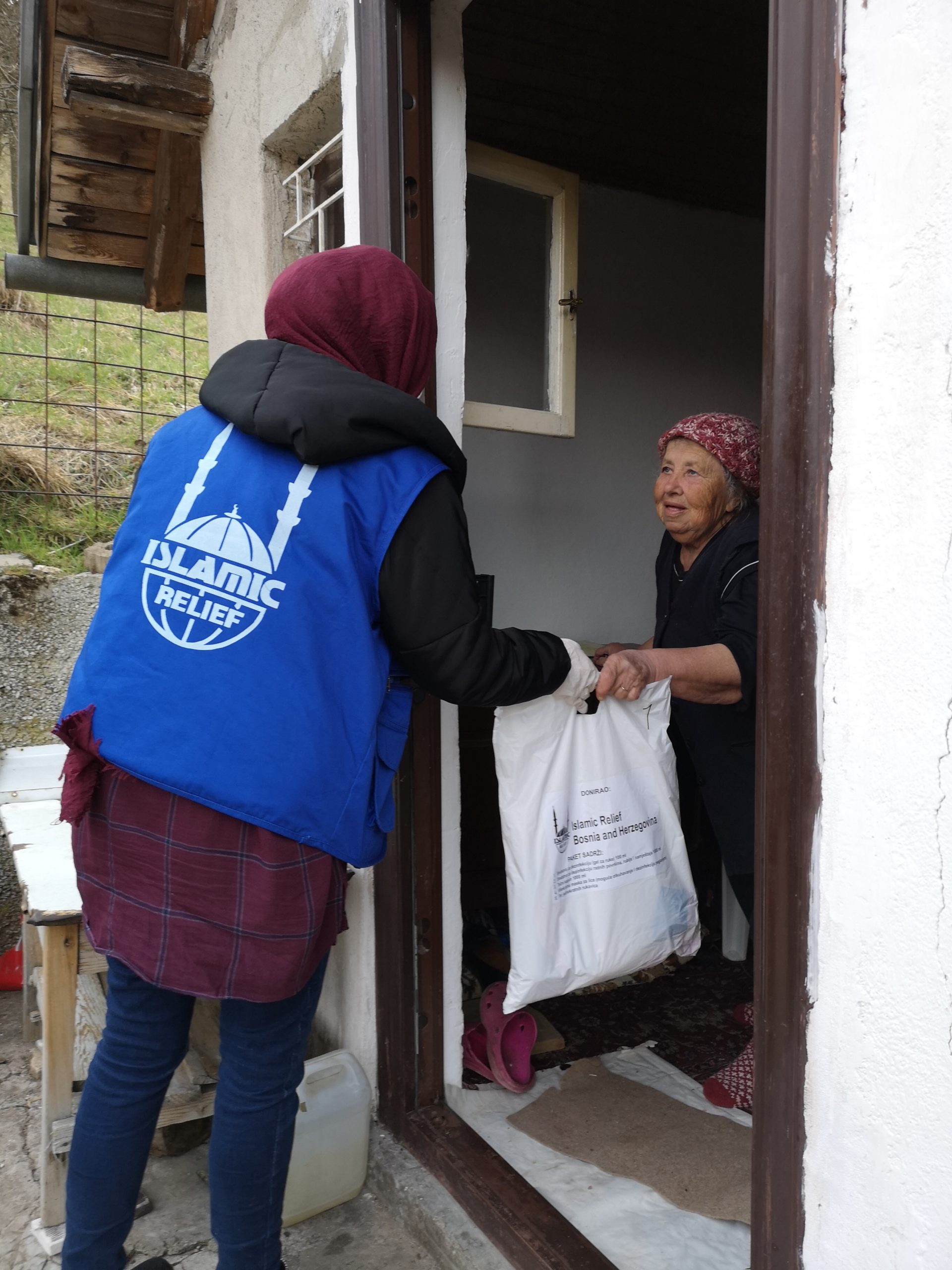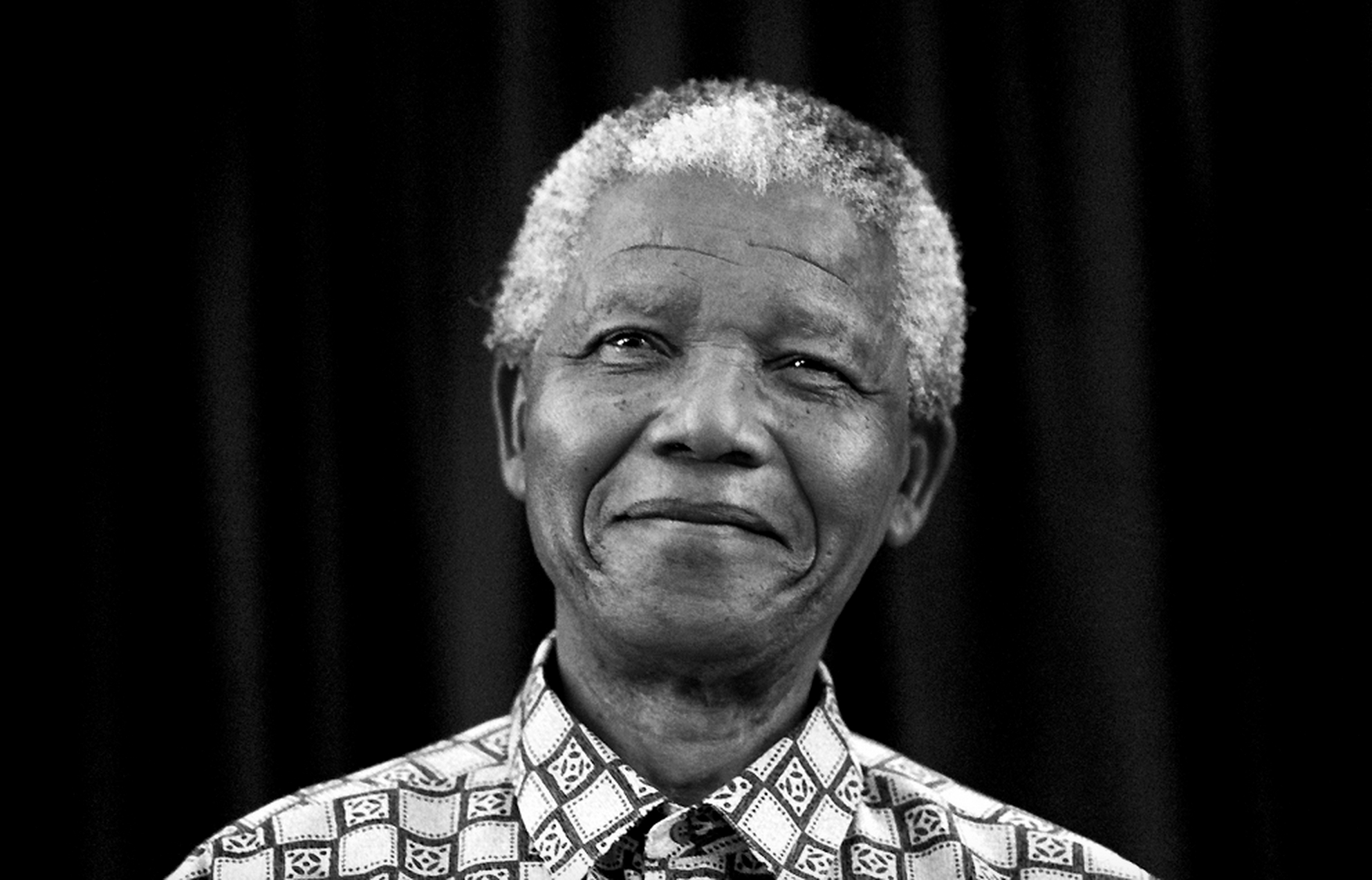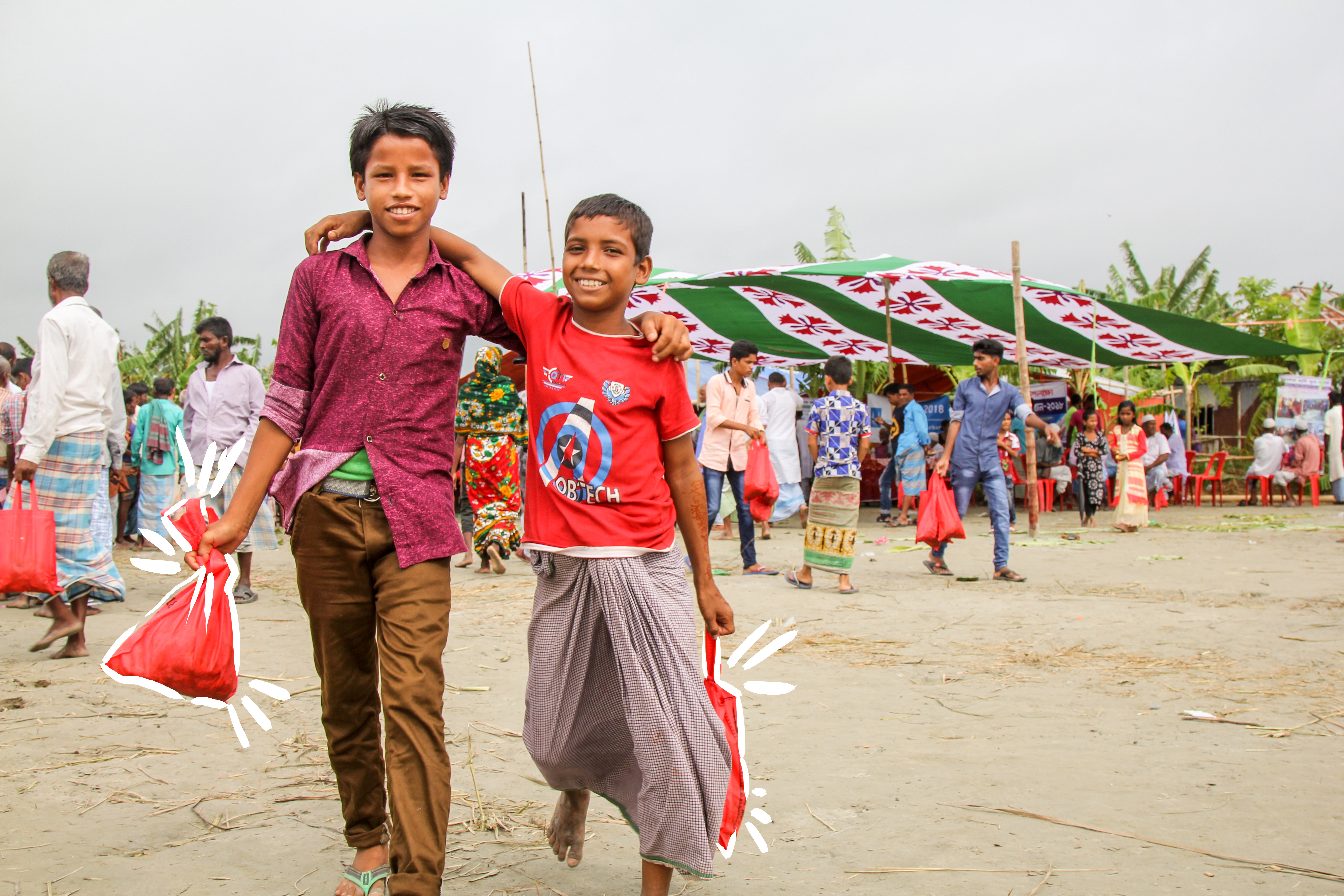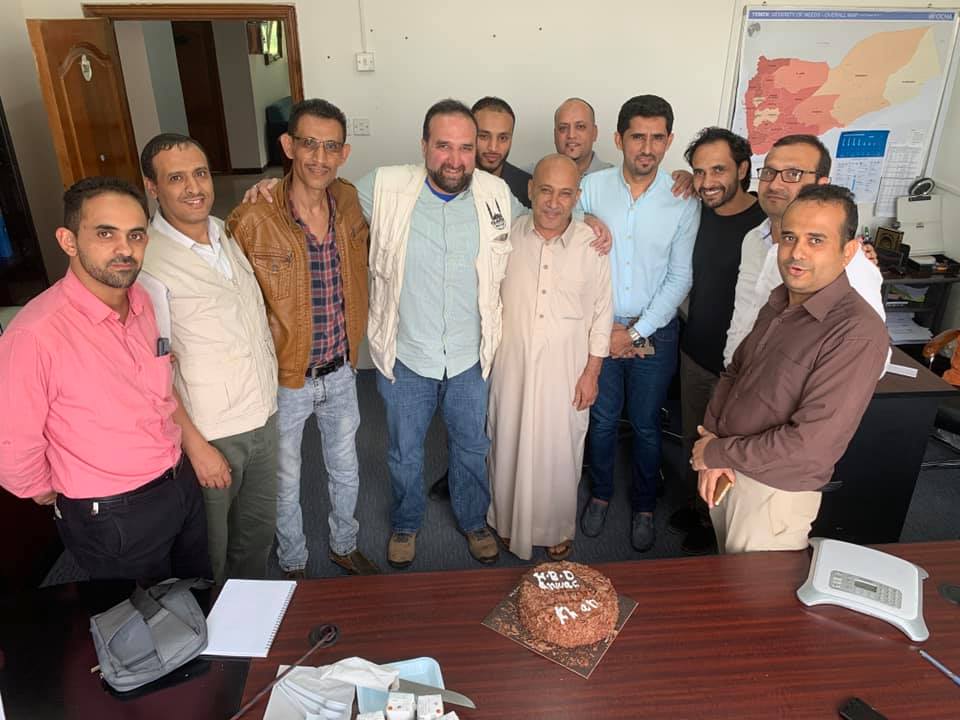From the Front Lines: Structural Poverty in America
Panelists Stressed the Need For Engagement To Combat Social Injustices Impacting Minority Communities
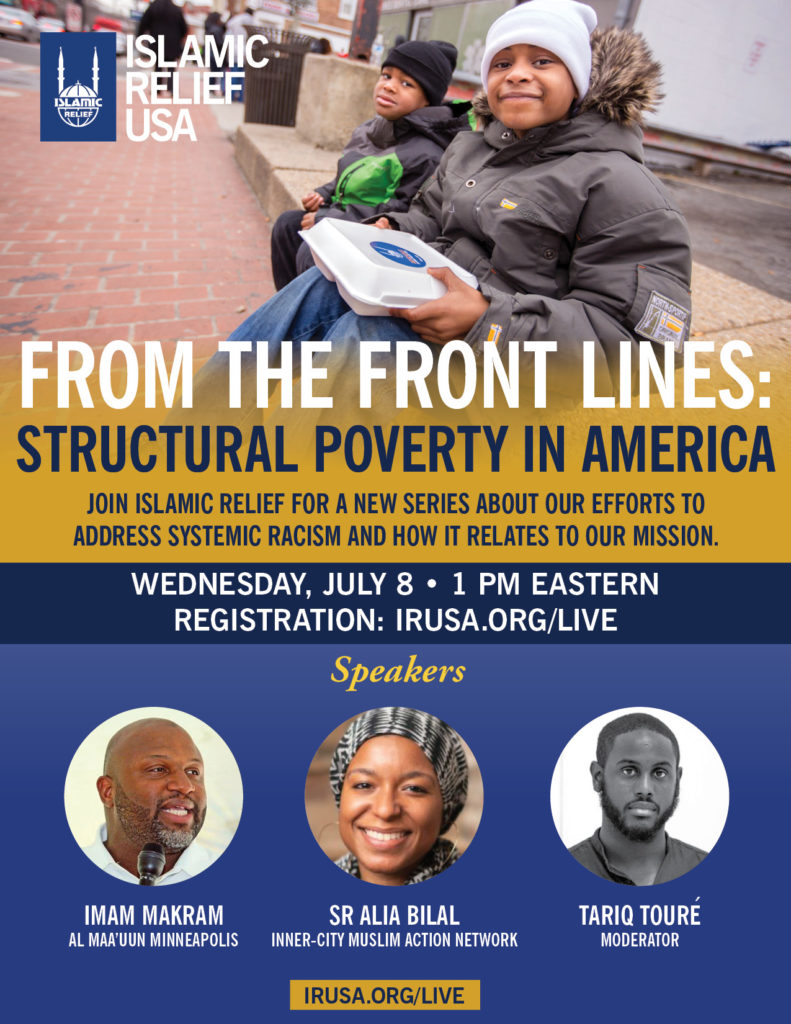
Islamic Relief USA kicked off a webinar series on Wednesday, July 8, with its first installment, “From the Front Lines: Structural Poverty in America.”
The discussion was moderated by Tariq Touré, senior communications specialist at IRUSA, and the featured speakers were Imam Makram El-Amin of Al-Maa’uun mosque, and Alia Bilal of the Inner-city Muslim Action Network (IMAN) of Chicago/Atlanta.
It focused on the intersections of poverty and systemic racism that are being exacerbated by the COVID-19 pandemic.
Following the killing of George Floyd, a Minneapolis man who died as a result of a police officer forcing his knee against his neck, people across the country have risen up to fight for justice, calling for more structural changes to combat racism, police brutality, and the disproportionate impact the novel coronavirus is having on Black and Brown communities.
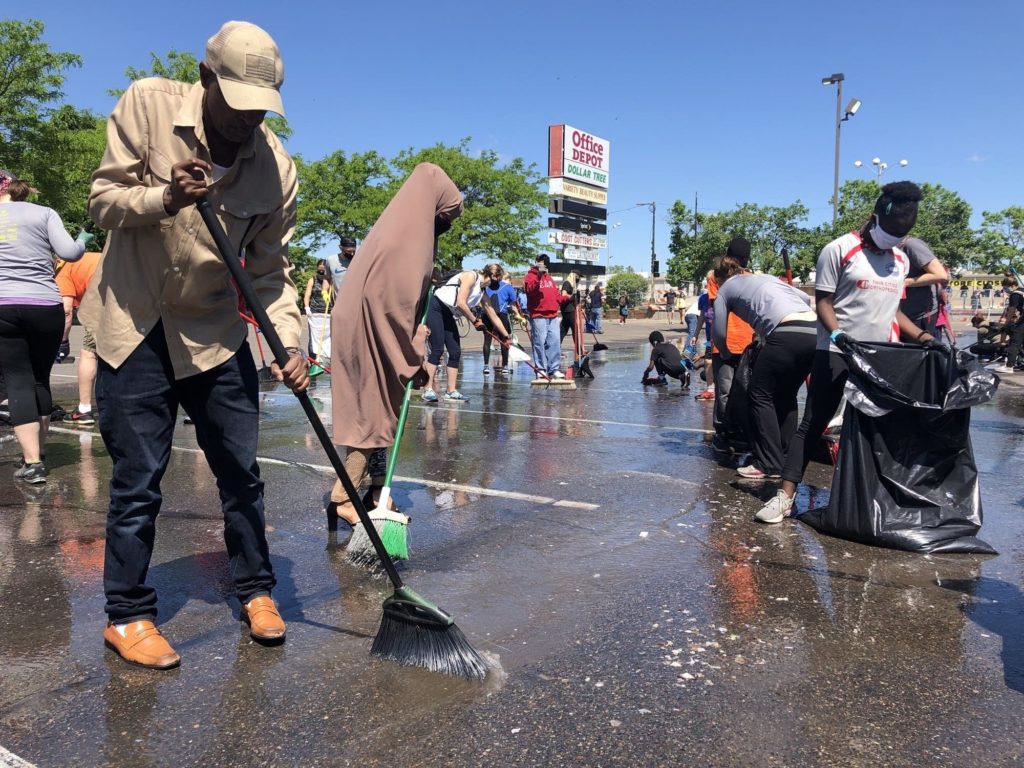
“Our work only increases when something like this happens,” Bilal said about the pandemic.
“White America gets a cold, Black America gets pneumonia,” El-Amin said in describing the wide gulf in the impact the pandemic has had. “Access, or lack thereof, is the product of structural racism.”
Many have realized that along with systemic change, a critical step in fighting for racial and economic justice is simply recognizing their own implicit biases, inevitably developed by participating in a society so impacted by its racial history.
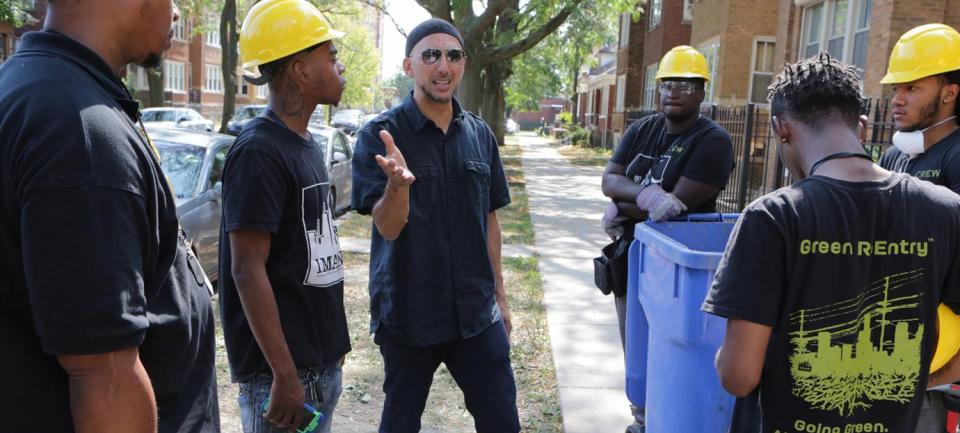
The speakers said the present public health pandemic underscores the need for humanitarian aid organizations, including Islamic Relief USA. IRUSA has long invested in communities to fight food insecurity and poverty on the ground. Others have looked toward important job training and house building projects to uplift marginalized and at-risk youth.
In and around Minneapolis, El-Amin’s mosque is helping feed some 4,300 people each week through contactless delivery, a service that’s become especially important given that a local supermarket was damaged and shut down during the protests.
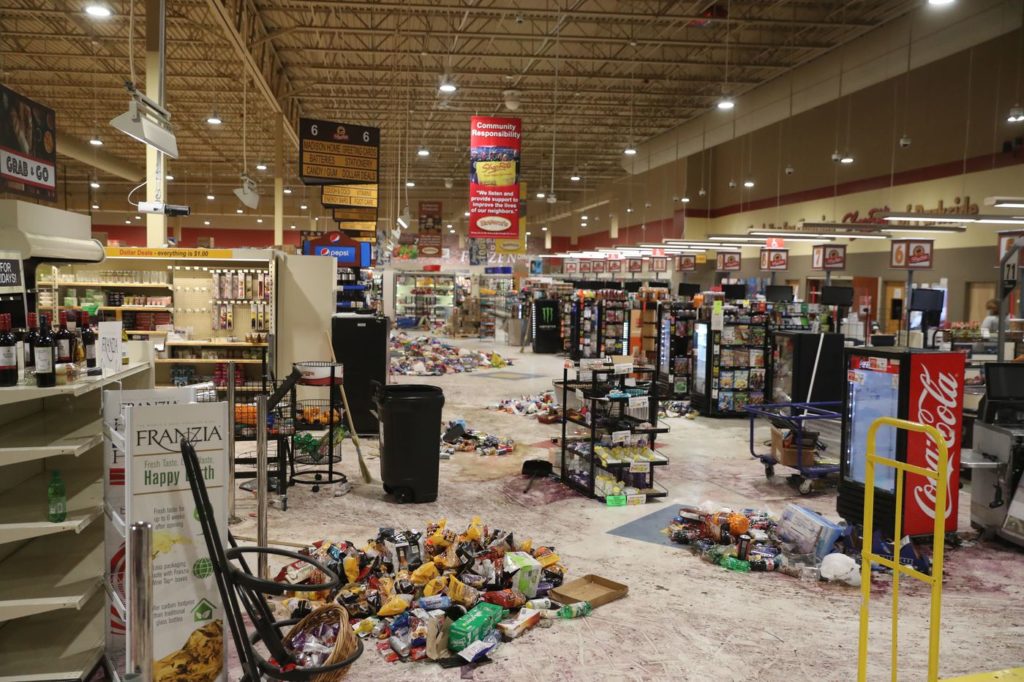
While humanitarian services like these are necessary, they shouldn’t become the norm or a substitute for government action. IRUSA advocates strongly for the federal government to increase funding to anti-poverty and anti-hunger programs, particularly during COVID-19.
The panelists urged for continued dialogue and described how representation is crucial to ensuring that context and insight are built on real-world experience and that the voices of those impacted can lead the discussion.
As a faith-based organization, IRUSA has the unique experience and perspective to engage in humanitarian work with communities of faith on the ground. As the struggle for justice for Black lives continues, the organization will continue to strive toward its guiding principles of excellence, sincerity, social justice, compassion, and custodianship.
